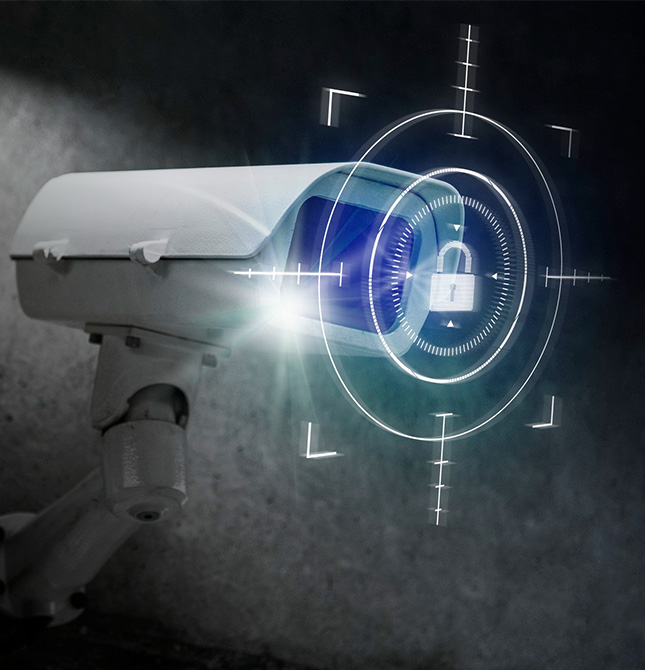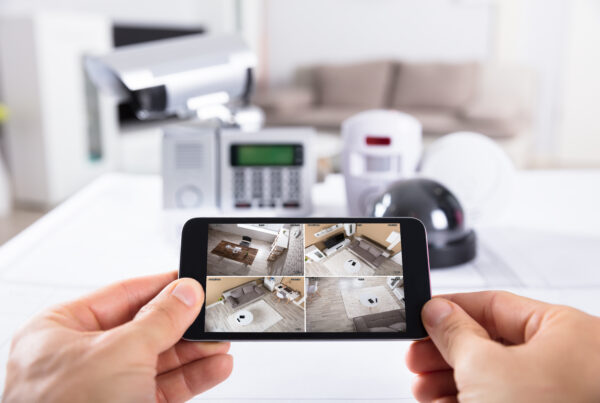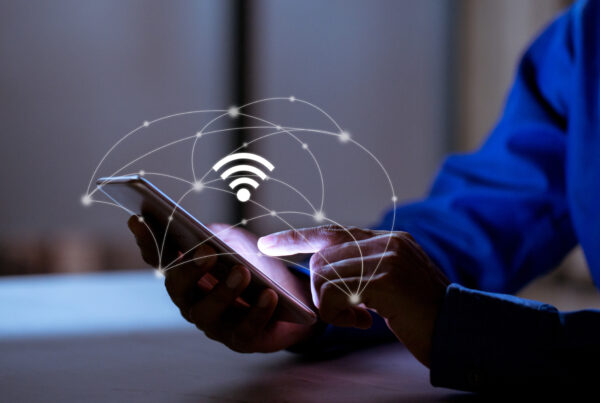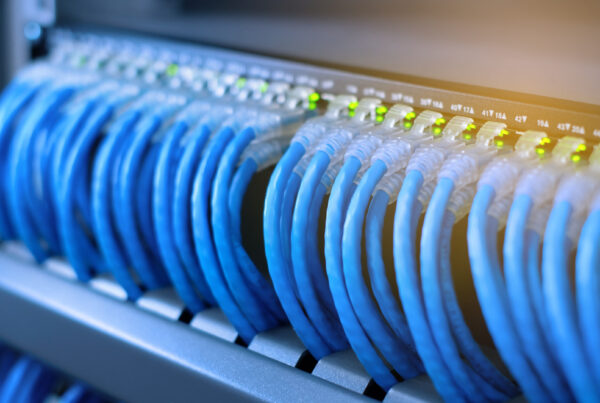Established over 20 years ago, we at Kent Cables are specialists in all areas of CCTV installation, repairs, and inspection. Your safety and the security of your property are paramount, which is why we have built a reputation for quality CCTV solutions. CCTV is essential to effective security, whether at home, in a commercial
space, in a school, hospital, restaurant, hotel or office. With CCTV, you can rest assured that your premises and occupants are safe 24 hours a day, 365 days a year.
When it comes to CCTV, we understand that it can be overwhelming, particularly when deciding what type of CCTV would be best for you. In these instances, you need the assurance of an experienced team, which is where we come in. What’s more, as technology develops, did you know that you can convert your analogue CCTV to digital? We at Kent Cables are highly experienced in converting analogue CCTV to digital and can replace the entire existing system with new IP recorders and cameras.
We are committed to your safety, so if you’re looking for a reliable company to convert your analogue CCTV to digital, get in touch with us for a FREE quote. Read on to find out more…
First things first, what is analogue CCTV?
Analogue CCTV has been used for years and is one of the most common types of CCTV used across the UK. Analogue cameras record images and then send the signal over a coaxial cable to a VCR or DVR (Digital Video Recorder). The DVR works to convert the video from analogue to digital and compresses the file, which is then stored on a hard drive and viewed as needed. Analogue CCTV requires that monitors are hooked up to a DVR to view the video. Alternatively, the DVR can be connected to a router and modem to broadcast it over the internet through an internal network.

What is digital CCTV?
IP cameras are digital cameras that can send signals straight to a broadband router and connect to the internet. This means that video and images are recorded digitally straight away. As a more direct route, IP cameras don’t use a DVR and instead use NVRs (Network Video Recorders). NVRs are easy-to-use software programs that can be installed, accessed, and managed from a dedicated device.
What are the differences between analogue and digital CCTV?
Knowing which CCTV system to purchase is an intense decision as it is important to understand what comes with it suits what is required for your building. With two decades of experience, we can confidently address the differences between analogue and digital CCTV…
Video Quality
Analogue Cameras
Though the overall video quality is lower than IP cameras, analogue cameras do tend to perform better in low-light conditions. However, analogue cameras are limited when it comes to site range and they don’t provide the zoom-in clarity that IP cameras boast. Analogue camera quality tends to be more grainy and degraded than IP camera quality.
IP Cameras
Digital cameras boast higher video quality than analogue cameras. As they transmit digital signals, the videos are sharper and clearer with far greater detail. What’s more, IP cameras feature more site ranges, such as wide or narrow fields of vision, and boast better zoom-in capabilities.
Resolution
Analogue Cameras
Analogue cameras are limited to resolutions of the NTSC/PAL standard of 720 x 480 pixels (NTSC)/575
(PAL) or 0.4 megapixels (4CIF). Analogue camera resolutions range from 420 to 700 which, at the high end, can produce sharp images.
IP Cameras
IP cameras typically provide resolutions up to 20 times higher than analogue cameras. IP cameras offer resolutions that can range from 1.3 megapixels to 5 megapixels (2560 x 1920) of compressed, encoded transmissions.
Transmission
Analogue Cameras
Analogue cameras typically operate over coax cable but can also function over twisted-pair cable or with wireless connections, however, that produces less resolution.
IP Cameras
Digital cameras work over twisted-pair, coax cables, and wireless connections. Unlike analogue cameras, IP cameras also be PoE (Power over Ethernet) powered. This wireless configuration is a practical and functional solution for many applications.
Intelligence
Analogue Cameras
Analogue cameras record images and then send the signal over a coaxial cable to a VCR or DVR. The DVR works to convert the video from analogue to digital and compresses the file, which is then stored on a hard drive and viewed as needed.
IP Cameras
IP cameras provide state-of-the-art network intelligence and can be managed remotely. With digital CCTV, you can stream images to recipients simultaneously and can deliver alerts or reports when motion is detected.
Installation
Analogue Cameras
Analogue cameras are more time-consuming to install and require more cabling than digital cameras. An analogue camera may require three separate cables for power, audio and video.
IP Cameras
IP cameras are easier to install and can transmit power, video, audio, PTZ (Pan, Tilt and Zoom) control, and control signals over a single cable.
Security
Analogue Cameras
Unfortunately, as technology has advanced, so have the means of breaching it. Analogue cameras are more vulnerable to security breaches than IP cameras as their feeds can be easily intercepted. What’s more, tapes, recording devices and more can be stolen and video feeds are not encrypted.
IP Cameras
IP cameras are much more difficult to intercept than analogue cameras. As they compress data before transporting it over the internet and have VPN support, IP cameras are far more secure than analogue cameras.
We offer a premium, high-end, and affordable service for both commercial and domestic clients. We’ll provide ongoing support, maintenance, and continuous guidance before and after your installation. For more information about the differences between analogue CCTV and digital CCTV, please don’t hesitate to get in
touch with us today for more information!
Why should I convert my analogue CCTV to digital?
The above differences should highlight the main reasons for converting your analogue CCTV to digital CCTV. However, if you still need some convincing, here are some of the benefits of taking this step and converting to digital CCTV…
- State-of-the-Art Technology
High-performance IP cameras are quickly becoming far superior to analogue CCTV. With high-definition videos combined with NVR technology, you can replace your analogue CCTV system with one that will deliver advanced performance and results.
- Reliable
When it comes to your security system, you need the assurance of a reliable system – and digital IP camera systems do just that. We can replace your outdated analogue system with a high-functioning and reliable digital system for your peace of mind.
- Smart Technology 24-hrs a Day, 365 Days a Year
Upgrading to digital CCTV means that you have access to smart technology 24 hours a day, 365 days a year. IP cameras allow you to share remotely and you can even manage your CCTV system from your smart device.
- Compliance
If you are responsible for the security of a business, you should be aware of the regulations that you need to adhere to. Restrictions are becoming tighter, and you may need to keep a longer video surveillance log than before, a digital system can do it without any problems.
- Moving With the Times
Technology is only going to advance further in the coming years and, particularly where safety and security are concerned, it’s important to move with the times. Updating your systems ensures that you are as secure as possible.
If you’d like to chat about the benefits of converting analogue CCTV to digital CCTV, please don’t hesitate to get in touch with us today for more information!
How do you convert analogue CCTV to digital?
Our team of professionals have many years of experience in installing top-of-the-range, digital CCTV systems. We understand the importance of feeling safe and secure in the comfort of your own home or business place. As your local experts, we offer high-quality solutions to modern CCTV, by installing only the best quality, premium range of domestic and commercial security cameras. To convert analogue CCTV cameras to IP cameras, we will hook the analogue-to-IP converter to the CCTV cameras and get the digital video server up on the network via a PoE switch or router.
Our team of engineers are friendly and has the specialist skills and knowledge needed to give you the ultimate peace of mind. From commercial to domestic properties, our CCTV solutions convey security and well-being to your home or business. Get in touch with us today for more information about how to convert analogue CCTV to digital!
How much does it cost to convert analogue CCTV to digital?
The cost of converting analogue CCTV to digital will vary depending on several factors. Therefore, we recommend that you get in touch with us for a FREE quote.
CCTV Maintenance Plan
We also offer CCTV maintenance contracts to new or existing customers. Whether your camera system was installed by us or not, we can offer a bespoke contract tailored to your requirements. Get in touch with us today for more information.
Is your analogue CCTV broken? It might be worth converting to digital…
Properly functioning CCTV systems will record any activity in and around your business or home and are a smart solution for keeping a record of how events happen including accidents or criminal activity. Working CCTV is designed to protect your property against unauthorised visitors and criminal activity. In the unfortunate
event of a criminal act, a functioning CCTV system allows you to act quickly and provides a record of the incident. If your analogue CCTV isn’t working, you may require CCTV repairs. However, we highly recommend considering converting to a digital system
Here are some signs to look out for that your CCTV could be broken…
- The colours are off or are just showing as black and white.
- There are horizontal or vertical lines over the field of vision.
- The video is flickering, or you have a black screen.
- The CCTV footage or recordings are noisy.
- You have no video signal.
- Your camera isn’t working at night.
- The DVR isn’t recording anything.
- Wires or cables are damaged, frayed or have deteriorated.
- The video footage is choppy.
If you’ve noticed any of the above problems, you may want to consider converting your analogue CCTV to a digital system. A digital system can give you the peace of mind that you, your property and its occupants are safe and secure. Please don’t hesitate to contact us for a FREE quote.
In conclusion…
If you’ve been thinking about converting your analogue CCTV to digital, we hope you’ve found the answers you’ve been looking for. Although there are significant differences between analogue and digital, the decision ultimately lies with you for which would best suit your requirements and your home or business. When you consider the advantages of converting to digital CCTV, you should be able to decide whether to take the step or not using our guide.
Please don’t hesitate to get in touch with our CCTV experts today for more information about converting analogue CCTV to a digital system. Our team of engineers are friendly and has the specialist skills and knowledge needed to provide you with expert advice and recommendations.
Why choose us?
|
20+ Years of Experience
With 20+ years of experience, we
have built a reputation for
offering excellent CCTV,
installation, repair and
inspection services at highly
competitive prices for home or
business premises.
|
Wide Coverage
If you’re looking for CCTV
installation, look no further than
Kent Cables for our expertise and
services. We cover all areas of
Kent including Ashford,
Canterbury, Maidstone and more.
|
FREE Quotes
Whether you are converting to
digital CCTV, need CCTV advice,
wish to update your current
system or require a new bespoke
system. Contact Kent Cables
today for a FREE, no-obligation
quotation.
|
If you’re looking for professional CCTV installation, repairs or inspections, please don’t hesitate to get in touch with us for a FREE quote!





